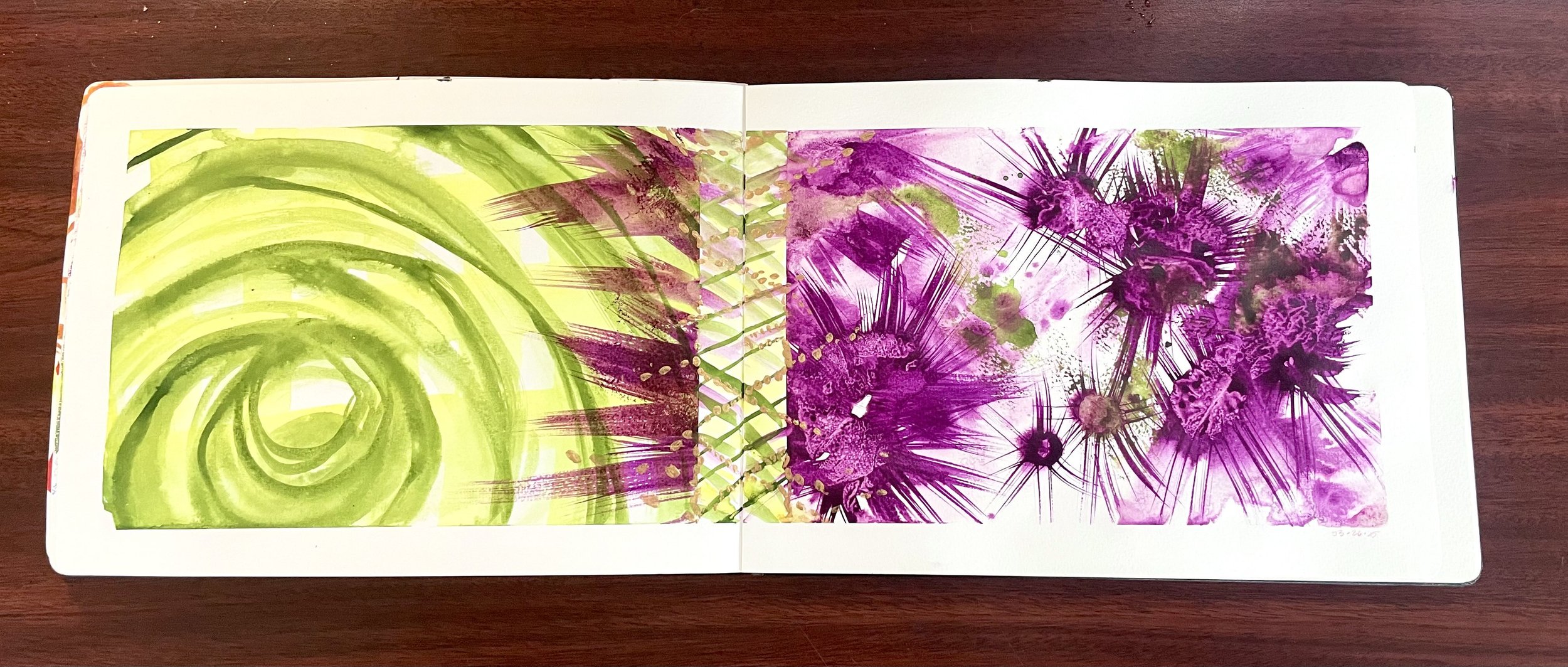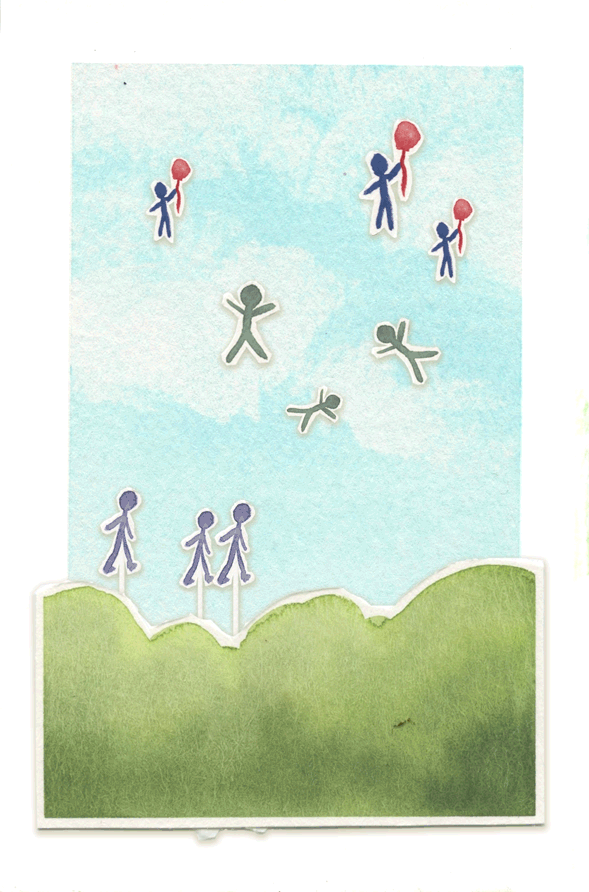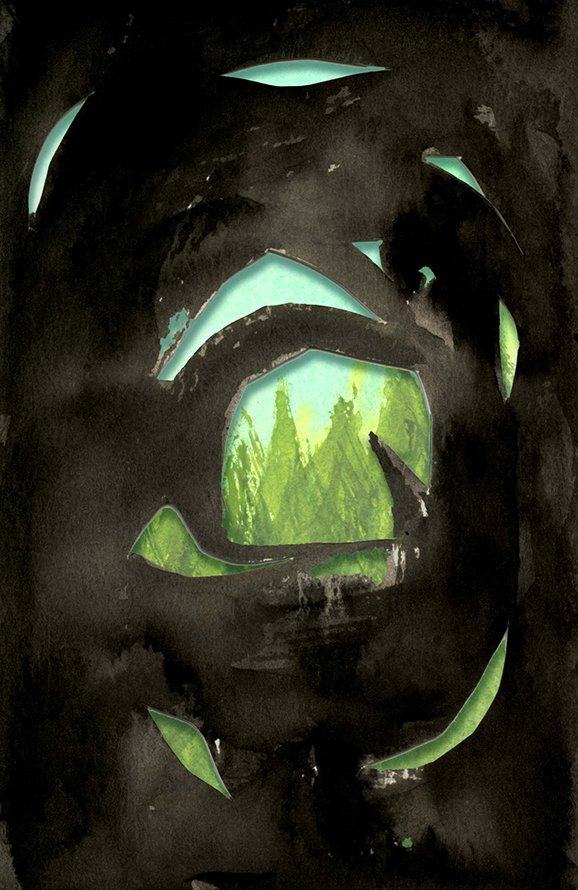

miss bryan
Every day, I soak in how much life has changed since having Bryan in my life. She's my little sidekick, my confidante, an incredibly cute wellness reminder who follows me around.
Her lighthearted outlook on life is infectious. And I’m determined to ensure she has the best life possible….


Mending
Art therapy sesh piece.
Trying to understand why I’ve been in a trauma / depressive state the last few weeks. It’s been a rough go.
I spoke about this conflict of knowing intellectually that slowing down and doing nourishing things are good for me.
And then it gets to a point where I feel like I’m Good™. I no longer need the crutch of “wellness” practices because….

I am worthy of peace and calm.
I am worthy of peace and calm.
I am worthy of feeling fulfilled in slow, meaningful actions.
I can let go of the trauma hustle, the intensity and chaos.
I deserve stability and deep joy.



Untitled Splats
CPTSD means the pains hurt a lot on some days - in ever fiber. And it's a lot of resting, compassion, and LETTING myself.

Reintegration
For some reason, we're taught to segment our Selves into boxes: work, home, friend, daughter, online, in-person, etc.
Bravery in weaving it all back together.
We were never meant to be split up to begin with...
Burn-Out
Whoof! The last two weeks have been a rough go. I’ve been pushing hard with my entrepreneur ideas and likely burnt myself out pretty hard.
Some old habits are hard to break. The hustle fire was the attitude that fueled my successes, and it’s deeply engrained in me to feverishly work with tunnel-vision to achieve my goals.

Grounders, Spinners, Dreamers
Some folks are grounded - connected to the Earth. Others are spinning around in their own heads. And us dreamers are floating around into space LOL

Behind the Fog
On Day 86 of daily meditation + painting, I started blending layers a bit more.
I painted the cloudy Depression layer, cut holes with exact-o knife…